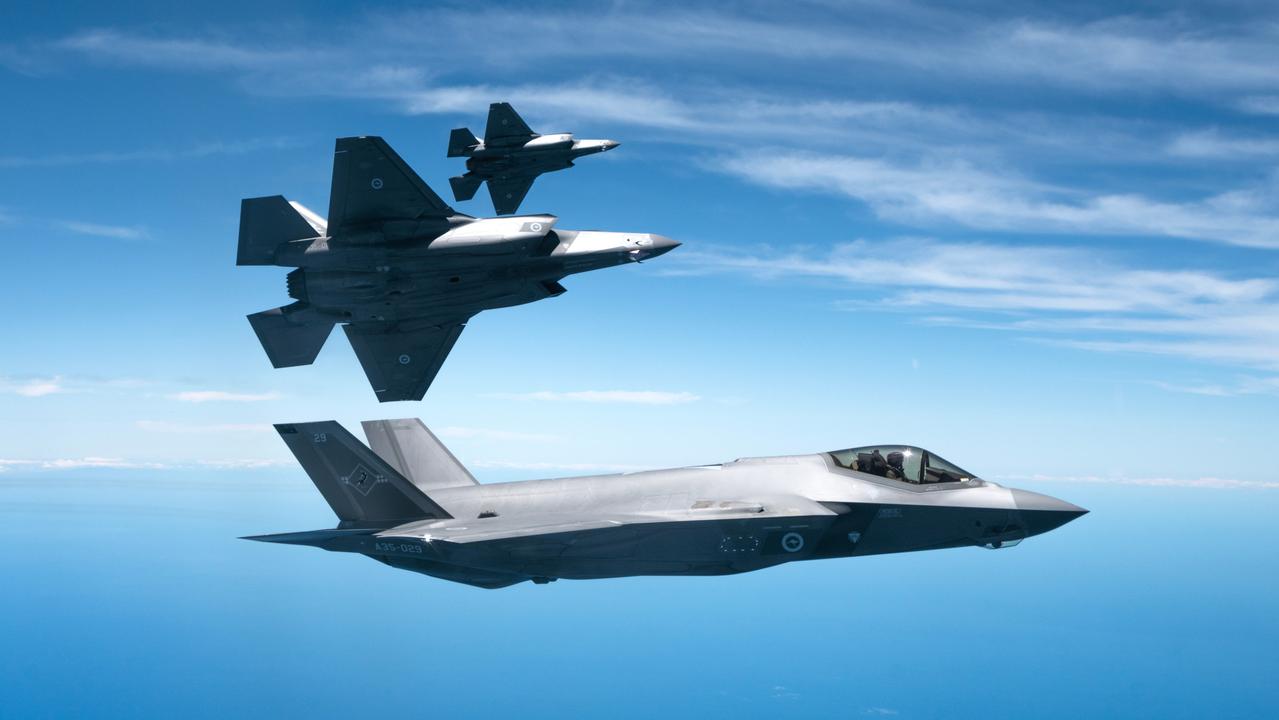It’s Time for a Strategic Policy Reset
The antics of the Trump administration delivered a serious hit to the authority, credibility and legitimacy of the US claim to leadership of the free world.

Faith-based policy is all very well when god’s on your side, to channel Bob Dylan. A nation of deep religious faith and boundless self-confidence, the US is well served by its motto “In God We Trust”. It has a unifying force that both grounds and reflects US exceptionalism.
For a more secular and anxious polity like Australia, our strategic rallying cry “In the United States We Trust” has endured for more than 80 years. It’s time, however, for a reset.
The antics of the Trump administration delivered a serious hit to the authority, credibility and legitimacy of the US claim to leadership of the free world. His fascination with autocrats and his disdain for allies was symptomatic of a deeper strategic malaise in the US, where disruption and dissonance across the globe has eroded the self-possession and sense of purpose that distinguished US strategic policy even after the failure of Vietnam.
But the disaster of Iraq, the Iranian stalemate, the debacle that has attended Syria — all of which have bolstered Russia’s resurgence — have discredited US claims to moral, political and strategic leadership. It may spend more than $700bn annually on military power, yet all that muscle has been unable to prevail over the Taliban. The failure in Afghanistan calls into question Australia’s continuing belief that the US secures Australia’s long-term strategic future.
With more than 2300 US service personnel dead, more than 20 thousand injured, $2 trillion spent, and recognising that the war is unwinnable, the US is withdrawing unconditionally from Afghanistan. Its allies are following suit.
Presidents Karzai and Ghani must be wondering what two decades of anti-Taliban conflict have done for the people of Afghanistan, which the Taliban will almost certainly overrun.
As a strategic dependant of the US, Australia has long judged that insurance premiums for its long-term security are best met by supporting the US in its global deployments, regardless of whether Australia’s strategic interests are directly engaged. But if, after investing so much blood and treasure, the US is prepared to retreat from Afghanistan, as it retreated from Vietnam, what lessons should Australia draw?
Scott Morrison believes that our alliance with the US is “our past, our present and our future — the bedrock of our security”. But as prime minister Menzies discovered, strategy affords no place for faith or sentimentality: in July 1963, president Kennedy made it clear that the US was not going to back Australian and British forces in Malaysia. It had more of its eggs in the Indonesia basket. All the ANZUS treaty requires is consultation. Then, as now, Australia must manage its own security.
The alliance with the US serves an important political purpose: it symbolises an alignment formed around deep values based on the individual worth and dignity of our citizens, the rule of law, and a political system where the executive is accountable to the people. But it is not the basis for national strategy.
Successive governments have failed the strategy test. They have expressed their unbounded faith that the US fleet will come sailing over the eastern horizon in our hour of need, without calculating how the US itself might be dealing with conflict in our part of the world or elsewhere. Nor have they imagined that the US may have no appetite for the loss of blood or treasure in the interests of any country but its own.
It has no need of an insurance policy to elicit Australia’s support, and may ultimately deny any claim we might make. Australia needs to premise its defence capabilities on defending our national interests. To do that, we need to identify what those interests are, and what we are prepared to commit to their defence.
These two key elements of strategy — aims and resources — are not realised through belief in a great power protector, but through a hard-headed and unsentimental assessment of our needs. The same reasoning applies to the more fraught question of preparedness.
Major systems are designed to address direct credible threats. They are not directed to optional add-ons (such as small, conventionally powered submarines) to US force elements that might be “nice to have” for US force commanders, but to the operational needs of the Australian Defence Force. So the focus of Australian strategy cannot simply contemplate war with China in support of US global strategic interests, but rather the capabilities and systems that will be needed when the US decides that Australia should defend itself in whatever circumstances may arise.
The times have changed.
At the end of the Vietnam War, Australia had a bigger economy than China, and bigger than ASEAN members combined. We had significant technological superiority.
Now, China’s economy is 10 times bigger than Australia’s, and its defence forces are also 10 times bigger than ours. And our technological edge is but a distant memory. Planning for a war with China? Ripping an arm off the PLA, as a prominent strategic commentator once said? Really? This is the unpalatable situation in which Australia finds itself in the aftermath of Afghanistan. We are significantly more on our own than current policy can bring itself to admit, and it is high time we understood that.
Apart from a substantially enhanced diplomatic effort, focused on coalition-building, we must get into the business of agile, flexible defensive capabilities, with enough offensive capacity (nuclear-powered submarines for instance) to persuade an adversary that the negotiating table is a better place to conduct business than the battlefield.
Allan Behm is director of the International and Security Program at The Australia Institute, Canberra.


